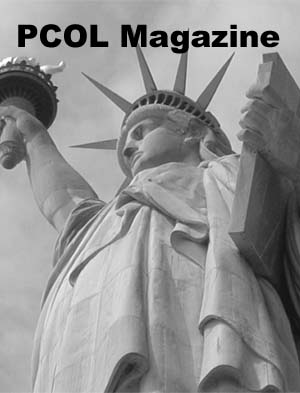
FOIA requests have played a role in major stories through the years, including articles on questionable research practices at the National Institutes of Health and safety risks encountered by Peace Corps volunteers - Stonewalling at government agencies has become more prevalent in recent years
Information, please
Better access to public records has broad benefits
Journalists consider the Freedom of Information Act an indispensable tool for obtaining -- in some instances, prying -- information from government agencies. But the law is actually used far more often by people who aren't members of the media.
Federal lawmakers ought to keep that fact in mind as they review plans for the first major update to the act in more than a decade. Put simply, the proposed changes would benefit not only the people they love to hate (news organizations) but the people they love to show love (voters).
The legislation, crafted by a bipartisan coalition in Congress, is designed to shore up the public's access to public records.
Among other things, the measure seeks to end unnecessary delays in responding to requests for information; name an ombudsman to monitor compliance; and hold government agencies and employees accountable if they don't abide by the law.
The public has multiple stakes in the outcome of this debate.
The Associated Press recently analyzed Freedom of Information Act requests and found that most come from military veterans seeking medical records and other data and from people conducting genealogical research.
In 2003, the Heritage Foundation reviewed FOIA requests for six months at four agencies -- the General Services Administration, Department of Transportation, Environmental Protection Agency and Department of Education.
Forty percent of the requests filed with those agencies were from corporations, 25 percent were from lawyers, 16 percent from individuals, 8 percent from nonprofits and only 5 percent from the media.
"While newspapers and other media have championed the cause of FOIA," Jay Smith, chairman of the Newspaper Association of America, recently told a congressional committee, "it is the everyday citizen, not the journalist, who submits the most requests for information."
That's not to say the media's requests aren't of value to the public, too.
As Smith pointed out, FOIA requests have played a role in major stories through the years, including articles on questionable research practices at the National Institutes of Health and safety risks encountered by Peace Corps volunteers.
Those stories and others prompted government reforms. Now, the Freedom of Information Act itself needs reform.
Stonewalling at government agencies has become more prevalent in recent years. An audit of 35 agencies by the National Security Archives Archives at George Washington University in 2003 found huge backlogs in responses to requests for information. Some requests to the EPA, for example, were more than three years old.
Strengthening the FOIA is especially critical now, in an era when records too often are shielded from public view on grounds that they could pose a threat to national security.
Additional restrictions were justified after the Sept. 11 attacks, but safeguards are needed to ensure that officials aren't using the war on terrorism as an excuse to hide documents that might expose government corruption or waste.
Protecting the public's access to public records is vital to national security, too. It's our best hope of cultivating an environment for open and honest government









